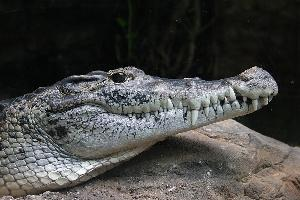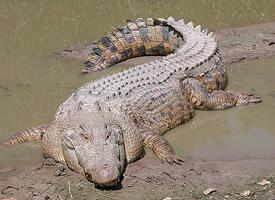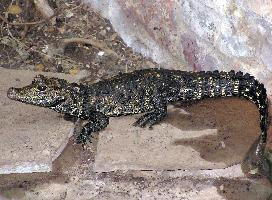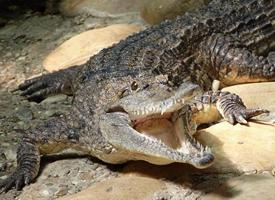
Description de l'animal
The Freshwater Crocodile, scientifically named Crocodylus johnsoni, is a fascinating and unique species of crocodile endemic to Australia. Also known colloquially as the "freshie" or the Johnson's crocodile, this reptilian species is distinct from its larger, more aggressive cousin, the Saltwater Crocodile (Crocodylus porosus), in both behavior and habitat preferences. The Freshwater Crocodile predominantly inhabits freshwater environments such as rivers, creeks, wetlands, and sometimes the inland lakes of northern Australia, showcasing a remarkable adaptation to its specific ecological niche.Characterized by a slender snout and a relatively smaller size compared to other crocodilian species, the Freshwater Crocodile typically reaches lengths of about 2.5 to 3 meters (8.2 to 9.8 feet) for males, with females being somewhat smaller. This feature not only distinguishes it visually from its saltwater counterpart but also reflects its dietary preferences, focusing on a diet of fish, amphibians, and small reptiles and mammals, rather than larger prey.
The skin of the Freshwater Crocodile is a light olive or grey color, providing camouflage within its natural habitat. Its body is covered in hard, protective scales, with a row of prominent, sharp scutes running down its back, which are more pronounced in this species than in some other crocodiles. These physical adaptations are not just for defense; they also assist in thermoregulation, an essential function for an ectothermic (cold-blooded) animal.
Breeding season for the Freshwater Crocodile occurs in the dry season, when females lay eggs in nests constructed on riverbanks. These nests are meticulously made from vegetation and mud, and the temperature within the nest can determine the sex of the offspring, a phenomenon known as temperature-dependent sex determination. The female guards the nest vigilantly until the eggs hatch, displaying a level of parental care that is quite remarkable among reptiles.
Despite its fearsome appearance, the Freshwater Crocodile is generally considered less aggressive towards humans than the Saltwater Crocodile. Instances of Freshwater Crocodiles attacking humans are rare and usually occur only when the animal is provoked or feels threatened. This relatively docile nature, however, does not mean they can be approached carelessly in the wild.
The conservation status of the Freshwater Crocodile has seen fluctuations over the years, primarily due to habitat loss, entanglement in fishing gear, and the historical impact of hunting for their skins. However, conservation efforts and legal protections have helped their populations to stabilize. Today, the Freshwater Crocodile is classified as of Least Concern by the International Union for Conservation of Nature (IUCN), though it remains a species closely monitored to ensure its continued survival.
In essence, the Freshwater Crocodile (Crocodylus johnsoni) is a remarkable survivor of the animal kingdom, having adapted to specific ecological niches within Australia's freshwater systems. Its existence underscores the importance of preserving natural habitats and the intricate balance within ecosystems where such unique species thrive.
Carte de répartition
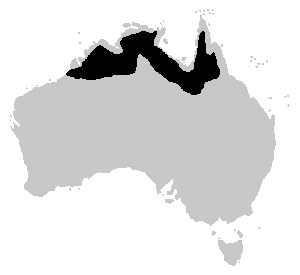
Animaux similaires
Nouvelles photos d'animaux
Top 10 des animaux
- Dolphin gull (Leucophaeus scoresbii)
- Diana monkey (Cercopithecus diana)
- Moustached guenon (Cercopithecus cephus)
- Galápagos tortoise (Geochelone nigra complex)
- Japanese macaque (Macaca fuscata)
- Russian tortoise (Testudo horsfieldii)
- Stone loach (Barbatula barbatula)
- Greek tortoise (Testudo graeca)
- Common flying dragon (Draco volans)
- Vendace (Coregonus albula)
